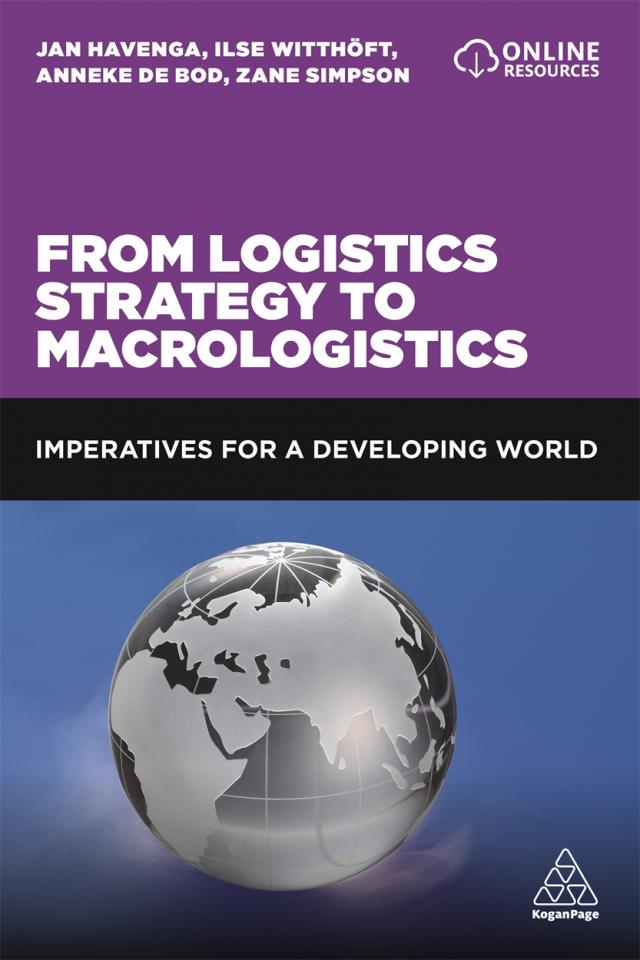- Explains measurement processes for macrologistics, looking at GDP and freight flow measurements
- Includes case studies examining the use of freight-flow and logistics cost models
- Based on vital research from Stellenbosch University
From Logistics Strategy to Macrologistics
Imperatives for a Developing World
Key features at a glance
About the book
Macrologistics is a strategic view of logistics as a production factor on national scales to support a shift towards sustainability. The book details logistics' evolution from a functional discipline to a value chain optimiser and, ultimately, an enabler of sustainability, including the evolution of metrics to support this shift. Macrologistics instrumentation involves striving towards the lowest total cost of ownership for national economies where, to improve decision-making, these costs should ultimately include the societal and ecological costs incurred due to logistics activities.
From Logistics Strategy to Macrologistics represents macrologistics research outputs for a number of developing economies, identifying distinctive macrologistics policy and infrastructure investments themes to address national logistics challenges in developing economies. The book culminates in a discussion on the potential future role of logistics to support the shift to a more sustainable society, where an acceptance of a degrowth paradigm might be required, and even advisable, for a more secure, fulfilling future. Logistics (and economics) scholars, researchers and practitioners should steer their work towards contributing to the development of an ecologically sustainable society, where resources and returns are shared widely, sustainably and equitably.





